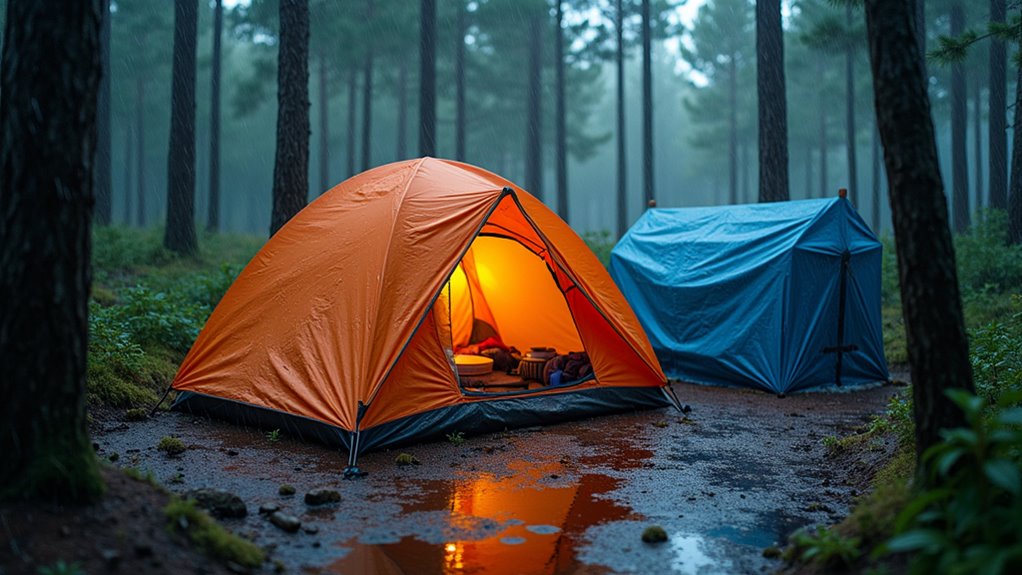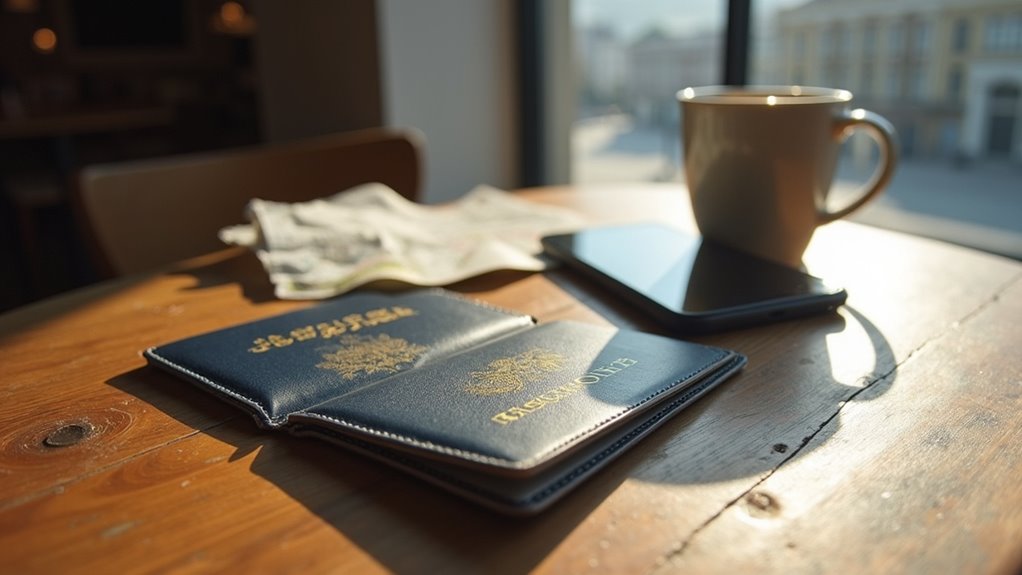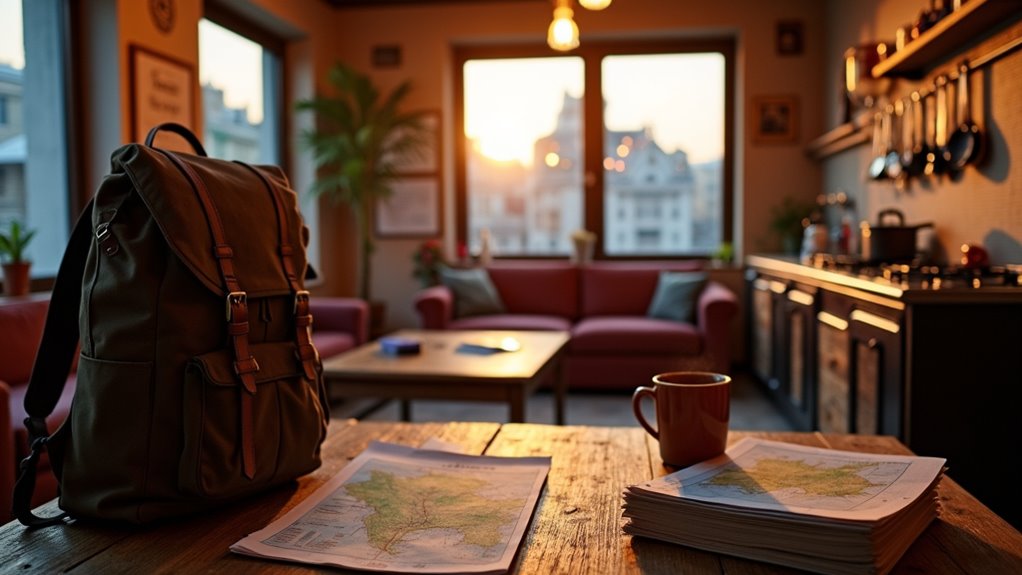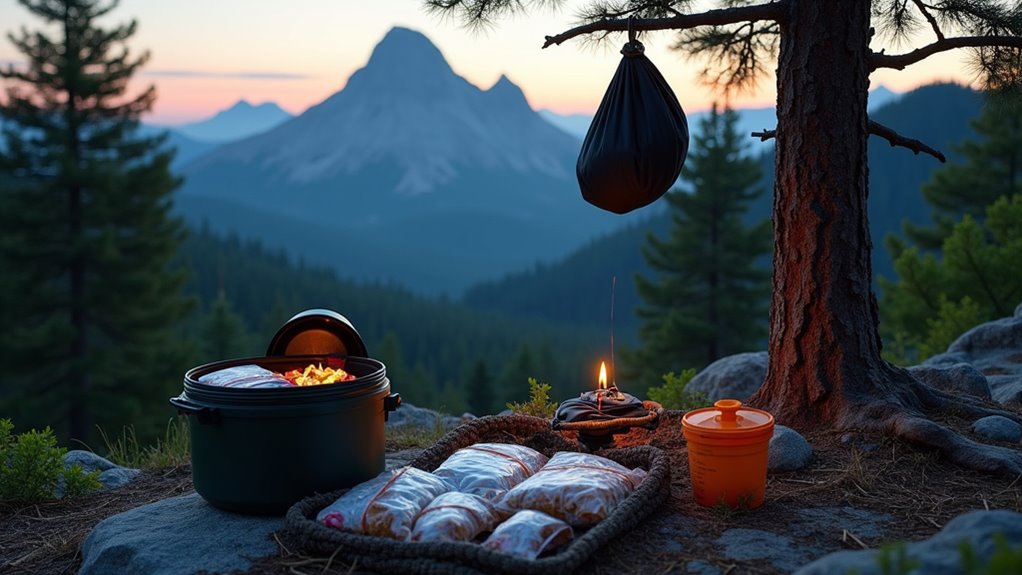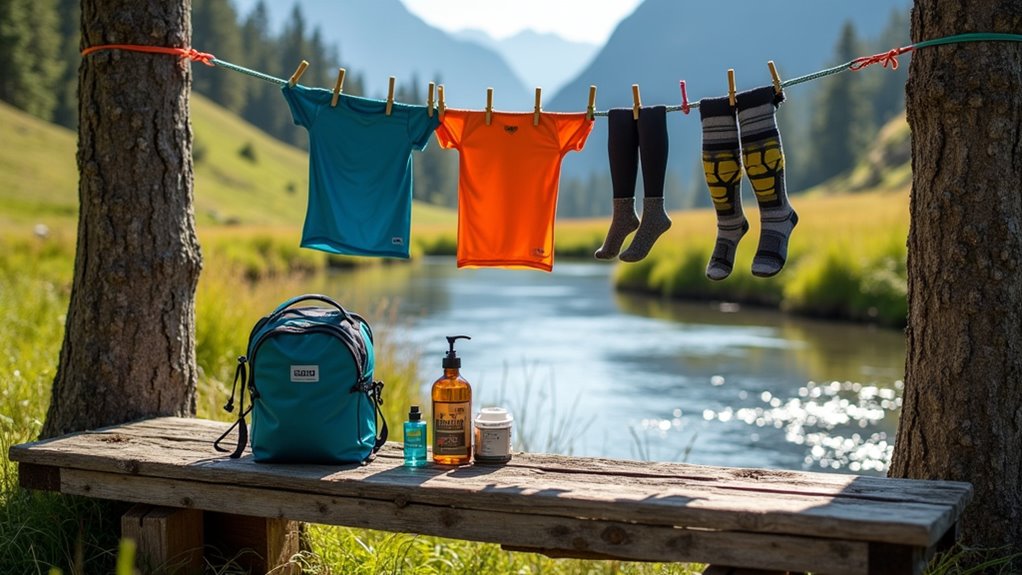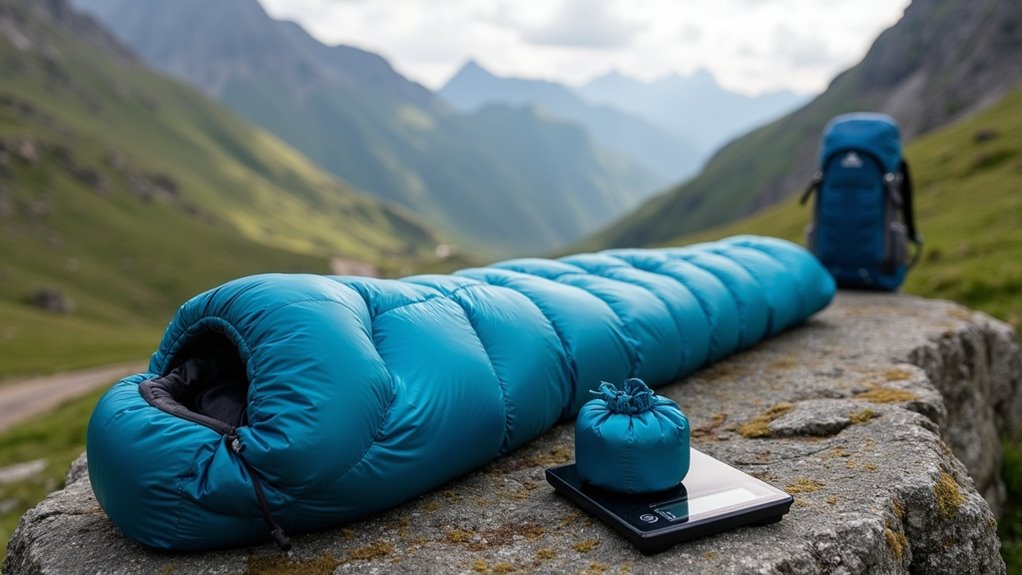When camping in the rain, you’ll need to prepare by packing quick-drying clothing in waterproof bags, thoroughly inspecting your tent for leaks, and choosing a slightly elevated campsite away from flood-prone areas. Always secure your tent with all pegs and guy ropes, maintain ventilation to reduce condensation, and use dry sacks for electronics and essentials. Store firewood under cover and designate a spot for wet gear to keep things organized. By following these steps, you’ll gain further insights into maintaining safety and comfort.
When planning a camping trip, you should always account for the possibility of rain to assure both comfort and safety during your outdoor experience. Before you leave, start by checking the weather forecast for your destination, as this will help you prepare appropriate gear and clothing.
Carefully inspect your equipment, including tents and waterproof jackets, confirming they’re in good condition and free from leaks or tears. Pack extra layers of clothing, focusing on quick-drying fabrics, and store them in waterproof bags or dry sacks to assure they stay dry throughout your trip. Bring spare tent pegs and extra rope, as these will be essential for making repairs or adjustments if the weather worsens. Always keep your first aid kit accessible and protected from water, as wet supplies might become unusable. Having a good rain jacket is crucial, as it provides reliable protection against wet weather and can make a significant difference in your overall comfort.
Inspect all gear for leaks, pack quick-drying layers in waterproof bags, and keep repair tools and your first aid kit protected from rain.
When choosing a campsite, select an area on slight elevation to minimize the risk of flooding. Avoid locations near rivers or lakes, since rising water levels can threaten your safety during heavy rain. Set up your tent so the entrance faces the morning sun, which helps dry out condensation and provides warmth. A well-suited tent can prevent a miserable camping experience in wet weather, making it a critical part of your camping gear.
Avoid pitching your tent directly under trees, as dripping water and falling branches present additional hazards. Position the tent door away from the prevailing wind direction to reduce rain entry and keep the interior drier.
During camp setup, make sure the tent is properly pitched, using all pegs and guy ropes to maintain adequate tension and prevent water from pooling on the fabric. Secure awnings and canopies to facilitate water runoff, and store firewood under cover to keep it dry. Designate an area for wet gear to prevent moisture from spreading to dry items. Use plastic containers to manage rainwater runoff under awnings or tents.
Manage rainy conditions by frequently checking your campsite for flooding and moving non-waterproof items under cover as soon as rain starts. Maintain tent ventilation to prevent moisture buildup, and avoid down-filled insulation, as it loses effectiveness when wet.
Keep flashlights and other essentials easily accessible, and use waterproof cases for electronics to protect against rain exposure.
